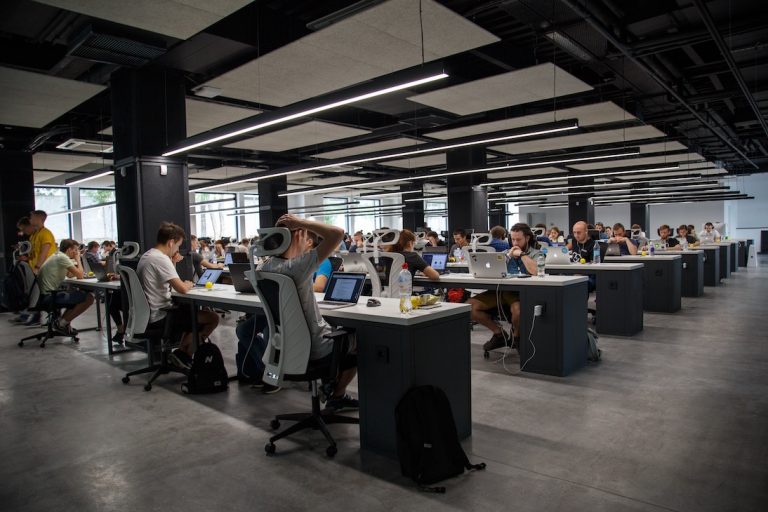7 TELEMEDICINE TRENDS TO WATCH IN 2020
Telemedicine, as a medical practice, has gained a lot of attention in recent years. Interestingly enough, its adoption rate has increased tremendously in the last five years. Who won’t like the idea of getting medical attention remotely while sitting in the comfort of their homes?
What is Telemedicine?
Telemedicine enables medical experts to diagnose and treat their patients by utilizing video conferencing tools over the internet with doctor and patient in separate locations. They use connected medical devices, mobile apps, and telemedicine or telemetry sensors to retrieve a patient’s vitals over the internet . In the most recent decade, the methodology has experienced a striking development and is turning into a significant service in the U.S. healthcare system.
Here are the 7 telemedicine trends to watch in 2020 where millennials and people across all ages will take advantage of its availability:
[1] Improved access to healthcare services
Telemedicine has provided a unique opportunity for people from all walks of life to have unrestricted access to healthcare services. Until now, the distance and travel time between healthcare providers and their patients sometimes discouraged people from accessing needful healthcare services in their localities. However, telemedicine has removed those hindrances and made it possible for everyone to be treated remotely. This is particularly helpful in far-flung places where the number of healthcare providers to patients is relatively small.
[2] Reduction in healthcare costs
Using telemedicine means that you won’t be spending money to commute from your home to the hospital every time to receive medical treatments. More so, you will not be paying hospital administrative fees and others required from an outpatient. Adding all these costs together, one can assert that telemedicine indeed helps patients to save on their medical costs. Logically, when healthcare is affordable, more and more people tend to seek appropriate medical attention when they are ill.
[3] Better patient engagement and satisfaction
Whether you are sitting on your comfy sofas or reclining on your car’s seat, during a telemedicine session, you have the luxury of keeping the doctor’s attention only on you. This is in sharp contrast to the reality at the hospital where many patients will be seeking his/her attention at the same time. So, telemedicine engenders better patient engagement; and, this is a good thing for high-quality patient care.
[4] Better healthcare quality
Since the physician patiently listens and attends to your medical concerns, you are inadvertently enjoying a better healthcare delivery. Generally, telemedicine has streamlined the job of treating people for healthcare providers. With 30% fewer hospital admissions, 63% of patients are likely to spend fewer days in hospitals, and 31% fewer hospital re-admissions, it is clear from the statistics that telemedicine is drastically improving healthcare delivery in every location or community.
[5] Healthcare provider satisfaction
It has been reported that doctors who practice telemedicine express deep satisfaction with the outcomes of their performances. This is because they are able to balance their professional duties with their family responsibilities. A doctor can treat a patient from the comfort of his/her own home and won’t be required to put on faces or facades. They can chat with their patients in a relaxed manner while listening carefully to their complaints.
[6] Reduction in No-Shows
In a situation whereby the hospitals are located several miles/kilometers away from where the patients live may result in absenteeism. Some patients, on purpose, refuse to show up for their medical treatment because of the hassle of commuting from their homes to the hospitals. This is not a good thing to do; some patients with non-life-threatening diseases have lost their lives when they allowed mild medical conditions to develop into full-blown diseases.
[7] Millennial demand
Telemedicine continues to be in high demand among millennials because of the trends they derive from it when compared with the traditional face-to-face medical consultation. For instance, they like the convenience of using telemedicine and the better treatment it brings them. They also like the idea that it is cost-effective and gives them the opportunity to open up to their physicians in the absence of other patients that may want to see him/her. It is true to say that telemedicine has come to stay, and its application will continue to be popular among patients from different demographics and social statuses. This trend is projected to increase towards 2020 as patients look for better and more cost-effective ways to receive medical treatments.
How IT Consultants Can Improve Telemedicine
Telemedicine cannot survive without great IT infrastructure. This is why hospitals that implement telemedicine as well as patients using this service must work with experienced IT experts if they want to keep enjoying the diverse benefits of telemedicine.
Hiring IT experts directly may appear daunting and expensive for small hospitals, clinics, and healthcare centers. The only sensible option available for these small-scale or even medium-scale healthcare providers is to use the service of IT consultants.
An IT consultant, upon request, will:
- Supply experienced IT professionals who are ready to build, maintain, and sustain IT infrastructure that will make telemedicine operate like a well-oiled machine.
- Hand over the management of the IT workers to the hospitals, clinics, and healthcare centers to ensure their optimal performance.
- Retrain IT professionals when necessary.
- Help hospitals using these IT consultants streamline their payrolls, in the sense that they are not responsible for paying any fringe benefits to them.






